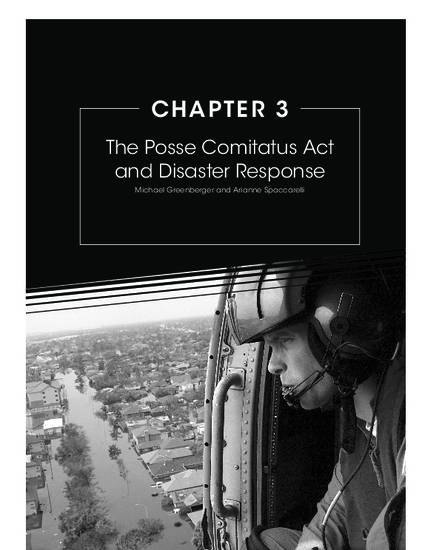
- disaster prevention,
- disaster preparedness,
- terrorist attacks,
- Federalism,
- open government,
- homeland security
The federal government’s failure to quickly send active duty troops and other military assets to Louisiana in the wake of Hurricane Katrina primarily stems from its narrow interpretation of the Posse Comitatus Act (PCA), which generally bars the use of federal troops for domestic law enforcement. As this chapter explains, the complete breakdown of law and order during a catastrophic emergency such as Hurricane Katrina allows the president to unilaterally deploy federal troops. This authority to deploy federal troops in response to certain natural disasters, in accordance with the PCA and the Constitution, is found in the Insurrection Act, Stafford Act, and Comprehensive Environmental Response Compensation and Liability Act (CERCLA), as well as the Insurrection, Guarantee, Commerce, and Necessary and Proper Clauses of the Constitution. While there are significant restrictions on the domestic use of federal troops, the restrictions do not prevent the federal government from swiftly and adequately responding to catastrophes.
